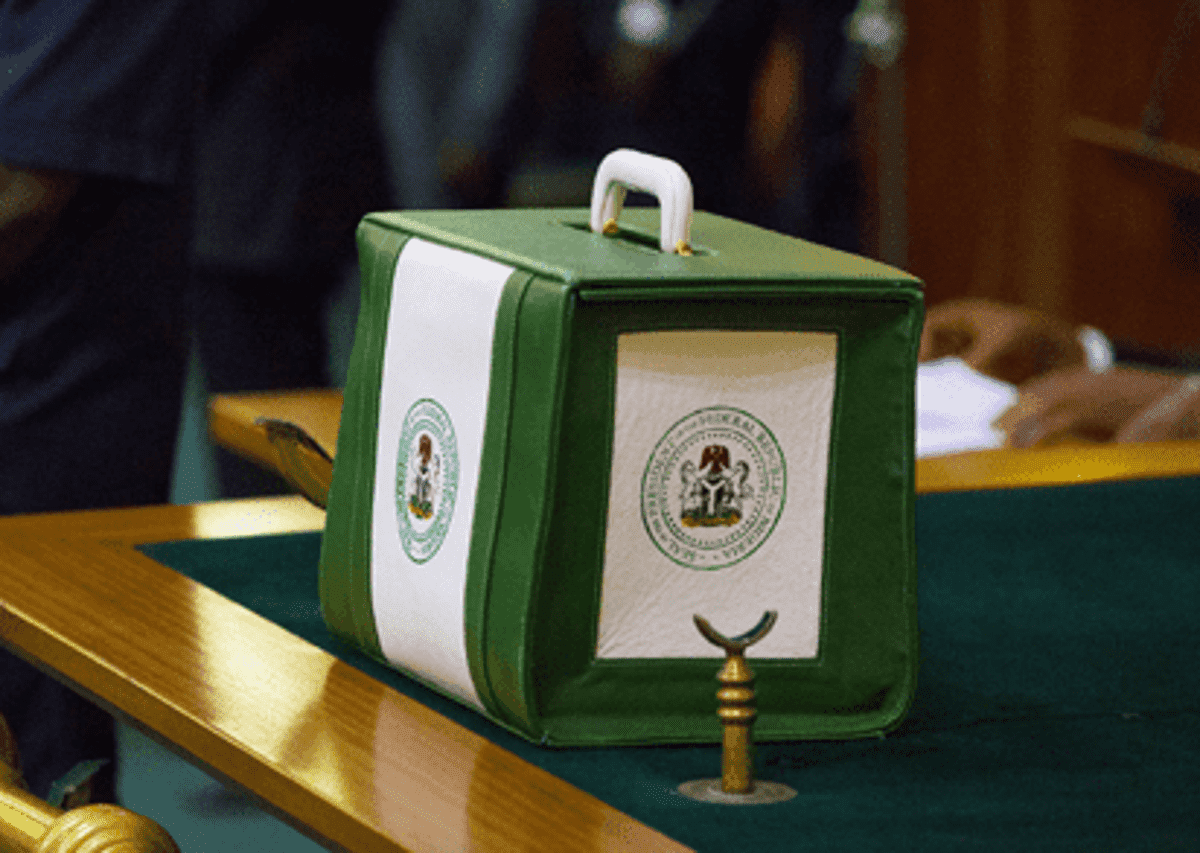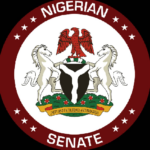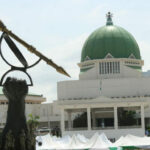The federal government debt service burden will hit N13.5trn if the N3.1trn allocated for the item in the 2021 budget proposal is added to funds already expended on same by this administration.
The proposal was contained in the details of the N12.658trn budget proposal for 2021 which were unveiled on Tuesday.
The breakdown shows that the country spent N943bn for debt servicing in 2015, N1.36trn in 2016 and N1.66trn in 2017.The analysis also showed that in 2018, the federal government spent N2.23trn on debt servicing while in 2019, it spent N2.14trn.
In 2020, the government planned some N2. 5tr on debt servicing and it estimates to spend N3.1trn on the same item line next year.
Daily Trust reports that the debt service is both for domestic and foreign debts.
Economists have insisted that the continuous borrowing by Nigeria was not good for the economy, going by the huge amount spent on servicing those debts.
Also, an official at the Ministry of Power has expressed worry that the delay in accessing the World Bank loan of $1.5bn (about N571.5bn) for Nigeria’s power sector in August may worsen electricity crisis.
Details of 2021 budget
The federal government in its 2021 budget circular released by the Budget Office indicated that in spite the huge debt service obligations, N3.1trn is earmarked for debt service even as the government anticipates over $10bn in additional borrowing between 2020 and 2021 from multilateral lenders and the Chinese government.
Based on the 2021-2023 Medium-Term Expenditure Framework and Fiscal Strategy Paper, the aggregate FGN revenue available for budget (including GOEs) for fiscal year 2021 is projected at N7.498tr, while the aggregate expenditure level is projected to be N12.658tr.
This aggregate expenditure is made up of Statutory Transfers of N481.41bn, Debt Service of N3.124tr, Sinking Fund of N220bn, Recurrent (non-debt) expenditure of N5.746tr and Capital expenditure (exclusive of capital in Statutory Transfers) of N3.086 trillion. Of the capital expenditure, MDAs capital is N1.485tr, document from the Budget Office show.
“The thrust of the FGN’s capital expenditure programme in 2021 will be completion of as many ongoing projects as possible, rather than starting new projects. Thus, MDAs are hereby advised that new projects will not be admitted into the capital budget for 2021, unless adequate provision has been made for completion of all ongoing projects” the circular stated.
Also a total of N420bn is proposed to be allocated to the Social Investment Programme (SIP).
The Statutory Transfers of N481.41bn consist of allocations to the National Judicial Council (NJC), Universal Basic Education Commission (UBEC), Niger Delta Development Commission (NDDC), National Assembly (NASS), Independent National Electoral Commission (INEC), National Human Rights Commission (NHRC), Public Complaints Commission (PCC), North East Development Commission (NEDC) and Basic Health Care Provision fund (BHCPF).
Based on the 2021 budget proposal, the aggregate sum of N3.086tr (excluding capital component of statutory transfers) has been set aside for critical capital expenditure, as summarised below: N1.485tr for MDAS’ capital expenditure; N234.19bn for Capital Supplementation; N337.06bn for Grants and donor funded projects; N20bn for Special Intervention Programme, N4335.59bn for GOEs; and N674.11bn for Multi-lateral and Bi-lateral Project-tied loans.
Brief review of 2020 budget
A revenue of N5.835tr (including GOES) was projected to fund the revised 2020 budget of N10.81trn. This implies a deficit of N4.98tr (or 3.57% of GDP) which is to be financed mainly by borrowing.
Data from the Ministry of Finance shows that as at 30th May 2020, FGN’s actual revenue was N1.62tr (62% of the N2.62tr pro-rata revised budget). The shortfall of 38% is attributable to the underperformance of both oil and non-oil revenue sources.
Oil prices fell sharply due to COVID-19 related disruptions of economic activities, which were exacerbated by the Saudi Russia oil price war. Structural weaknesses in the global economy, and the domestic environment by extension, further compounded the economic crisis with the following consequences.
The FGN share of oil revenues was N701.6bn (representing 100% above the prorated sum in the revised 2020 budget) while non-oil tax revenues totalled N439.32bn (65% of revised target). Companies Income Tax (CIT) and Value Added Tax (VAT) collections were N213.24bn and N68.09bn, representing 62% and 58% respectively of the prorata revised targets for the period.
Customs collections was N158bn (73% of revised target). Other revenues amounted to N339.51bn, of which independent revenues was N189.31bn. Recoveries and Stamp duty collected during the period are yet to be booked in the fiscal accounts.
On the expenditure side, N9.97tr was appropriated (excluding GOEs and Project tied loans), while N3.98tr (representing 95.7% of the prorata N4.16tr) was spent. A total of N1.79tr was released for non-debt recurrent expenditure, including Salaries, Pensions and Overheads, while N1.58tr was released to cover debt service obligations during the period.
As at end of May 2020, only N378.85bn had been released for capital expenditure, (largely due to the budget revision exercise).
In effect, a deficit of N2.35tr was incurred as at end of May 2020, which is 51.01% of the budgeted deficit for the year.
Nigeria now in debt crisis- Economists
Economists have raised an alarm that Nigeria’s debt to revenue and debt to Gross Domestic Product (GDP) ratios are becoming unfavourable.
A recently released communiqué signed by the Chairman of Daily Trust Board of Economists, Professor
Nazifi Abdullahi Darma, advised that Nigeria needs to be more proactive in public financial management as the economy is contracting and the country’s public debt profile is becoming unfavourable.
“The Board observed that Nigeria’s debt to GDP ratio has started spiking contrary to the initial consensus that Nigeria merely had a revenue problem and not a debt crisis. This calls for more prudent management of lean resources, diversification of revenue sources and improved efficiency in collections,” the communiqué stated.
The Board noted that the total public debt portfolio of Nigeria has risen to N28.63tr, based on the Debt Management Office (DMO) report announced on Thursday, July 2, 2020.
Also speaking, an economist and lecturer at the Lagos Business School Dr. Bongo Adi said the debts levels were not sustainable especially with our revenue to debt ratio, especially with the fall in the naira value.
‘‘The debt levels do not appear to be rational as Nigeria is not only borrowing money but also defending the naira.
“We run an economy that also prioritises borrowing. I think it’s an unsustainable way to manage.
If we had used the money we have pumped into the forex market to defend the naira, we shouldn’t have been borrowing at this rate.
‘‘Now that the naira value has worsened and the CBN is no longer able to intervene in the forex market, naira has fallen to N470/1$. So the question is that why didn’t the CBN leave it all these years?” Dr. Adi said.
‘Delay on W/Bank loan could worsen power challenges’
Experts have said the delay in accessing the World Bank’s $1.5 bn (about N571.5bn) loan for Nigeria’s power sector in August may worsen power sector crisis, urging the bank to help Nigeria bring down electricity costs.
Reuters had reported, citing familiar sources, that the global lender was unlikely to approve the facility.
The Minister of Finance, Budget and National Planning, Mrs. Zainab Ahmed in 2019 at the World Bank/IMF in Washington DC, US, made the $3bn loan request for the power sector for bridging market shortfalls, upgrading transmission and distribution networks for the power sector reform.
Our reporters learnt that a tranche slated for August, for the Distribution Companies (DisCos) may not work as the bank insists on forensic audit on their accounts before that. But the DisCos said the audit should be for the entire sector.
An official at the ministry of power said the delay in the World Bank loan would affect the reforms, especially at the DisCos’ level.
“However, I assure you that with the Siemens power deal starting already, the effect will not be for long.”
After freezing a new Service Reflective Tariff (SRT) in July, the Federal Government was to use the loan to finance the shortfall until that tariff comes early 2021, but an official said that may not be feasible immediately.
Sources in the sector also said removal of the erstwhile MD/CEO of the Transmission Company of Nigeria (TCN), Usman Mohammed, affected negotiations for a $400m NETAP World Bank loan.
But the Minister of Power, Engr. Sale Mamman, in a post on Tuesday, assured that power projects would be rolled out through the Siemens power deal, financed by German commercial banks, an alternative for the World Bank loan.

 Join Daily Trust WhatsApp Community For Quick Access To News and Happenings Around You.
Join Daily Trust WhatsApp Community For Quick Access To News and Happenings Around You.

